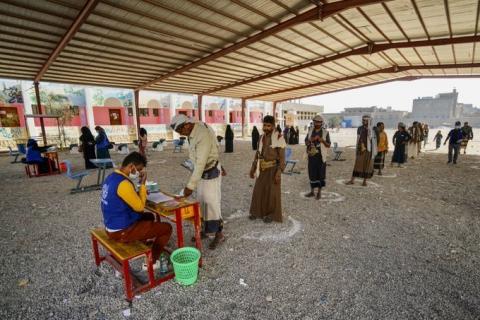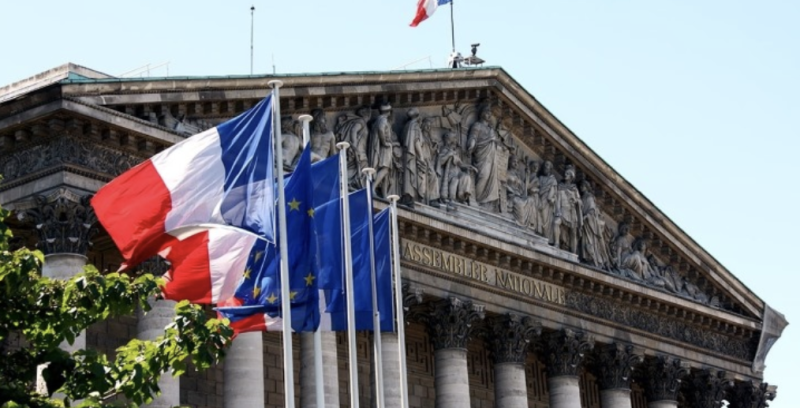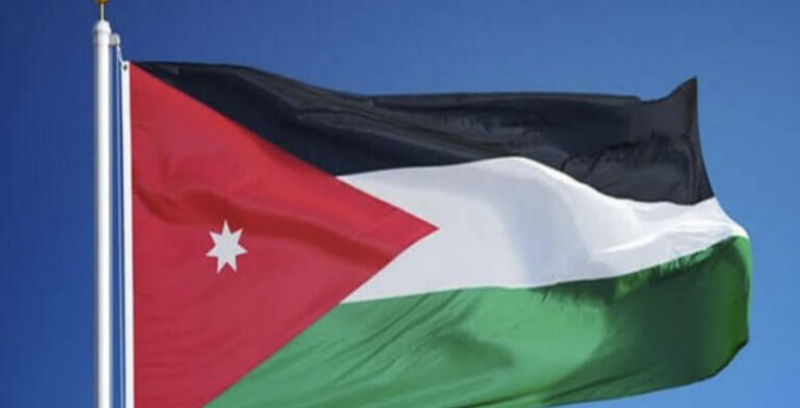As Yemen's mudbrick legacy crumbles before our eyes


When Maged Tameh looks up at his house in the historic Old Town of Sanaa, Yemen’s capital city, he can see right into what used to be his bedroom. Two alcoves in the whitewashed wall, and in front of them the place where the bed once stood. The wooden beams, speckled with white, and above them the brushwood that held up the ceilings for centuries. But in August, the facade caved in and the load-bearing walls collapsed into the street at the front of the house.
Signs of this approaching calamity had been apparent for some time, says Maged Tameh. And ultimately, it was the rain that caused the collapse. Water dripped from the ceiling and welled out of the cracks. He managed to get his family to safety, along with their remaining possessions. A few pieces of furniture, cookware, clothes.
But the house where he was born, like his father and his father’s father before him, was destroyed. Maged Tameh doesn’t know if he will ever be able to rebuild it. Weeks after the accident, there is a still a heap of clay and tiles in the street, along with the plastic sheeting that he used to try to prevent the threatened collapse.
The city’s gingerbread-coloured clay tower houses, with their characteristic white decorations, have survived for centuries. But the devastating combination of climate change and war is threatening to permanently destroy this collection of 6,000 buildings, a unique jewel of early Islamic architecture that has been designated a world heritage site since 1986.
The heaviest rainfall in decades destroyed four houses completely in July and August, as Aqeel Saleh Nasari tells the Suddeutsche Zeitung. He is the spokesman for the General Organisation for the Preservation of the Historic Cities of Yemen (GOPHCY). The roofs of more than 100 buildings fell in either partially or fully. And 250 buildings required swift intervention and renovation to prevent them from collapsing in any further storms, or during the next rainy season at the latest. 5,000 of these buildings have leaking roofs – which often signals the start of their disintegration.
Climate change is exacerbating the extremes of weather in the Republic of Yemen, as it is in the other countries on the Arabian Peninsula. More than 170 people lost their lives in flooding this summer, and thousands were left homeless.
Sanaa, which lies in a basin 2,200 metres above sea level, always receives a lot of precipitation during the rainy season due to the nearby mountains, which rise to 3,600 metres in places. This is a blessing in a country that suffers from acute water shortages. But for years now, increasingly heavy storms have been breaking over the capital, leading to regular flooding. The floods are softening the compressed clay of the houses, which are up to 1000 years old. In the Old Town’s narrow lanes, the water was knee-deep, making the foundations of the houses start to slip. Cracks in the walls of more than 1000 of the tower houses, which are mostly used as apartment buildings, are an unmistakeable sign of structural problems.
The foundations of four in every five houses are already damaged, eaten away by damp, salt and microorganisms. "Eventually they are just going to collapse under their own weight," the Old Town’s former general conservator, Naji Thowabeh, told the SZ five years ago. "And when one falls, the others will become unstable." In many of the narrow streets, the houses are tightly packed together.
And then there is the war. The Saudi-led military coalition’s shells and bombs have only hit the Old Town directly on rare occasions. But the shock waves from explosions in the surrounding mountains, where the Houthi militias of the uprising have taken over the army’s bases and bunkers, are making the Old Town quake, blowing windows out of their frames. The Houthis have very recently fired shells at targets in Saudi Arabia, and after months of quiet, jets have started dropping bombs on Sanaa once again.

Red Sea — The European naval mission tasked with safeguarding international shipping lanes announced that an Italian frigate operating under…

Paris – The French Ministry of Foreign Affairs issued a statement expressing deep concern over the situation in Yemen, while reaffirming its…

Amman – Jordan’s Ministry of Foreign Affairs and Expatriates issued a statement on Wednesday underscoring the Kingdom’s close mon…